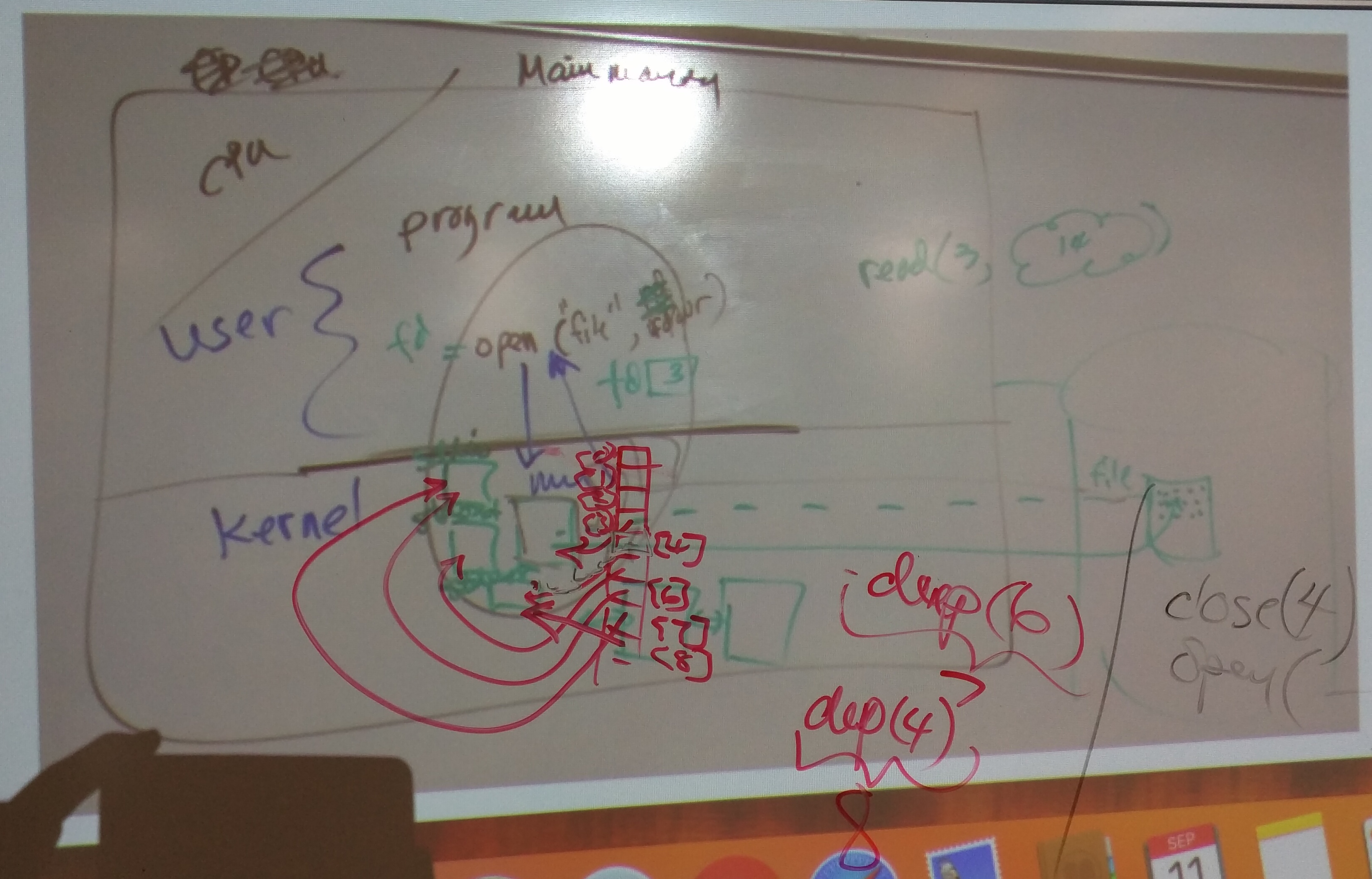In-class notes for 08/26/2020
CS 273 (OS), Fall 2020
Questions?
Reading questions?
Chapter 1
Chapter 10
Submitted questions on assignments and technology
Use this form to submit questions for a future class meeting
Reading questions
Expanded notes on topics from last time
Lab 2
(Start in-class; due later as part of HW3)
Selected Linux system calls
More file-related system calls
dup(),pipe(), etc.Each process has a kernel file descriptor array, with file descriptor as index and pointer to open-file data structures as values.

System calls for file systems, i.e., OS components that contain files and directories
mount(),umount(), etc.
Other components of an OS besides file system
Devices
ioctl(), for setting parameters for an I/O (input-output) device (will return for code illustration)Berkeley socket calls, for network I/O (will return later)
Specialized device calls, e.g., time-related calls for interacting with clock device (will return)
Memory management
brk(),sbrk(), for adjusting how much main memory is allocated to a process.
Process management system calls
fork(), execve(), exit(), wait(), waitpid()Example code: ~rab/os/egs/forkeg.c
(
fork(),execve(), andwait()implement the key ideas in the Linux strategy for starting new programs.)zombie process -- process called
exit(), but its parent hasn't calledwait()for it to collect its exit status, so that exited process continues to take up OS resources.
< >